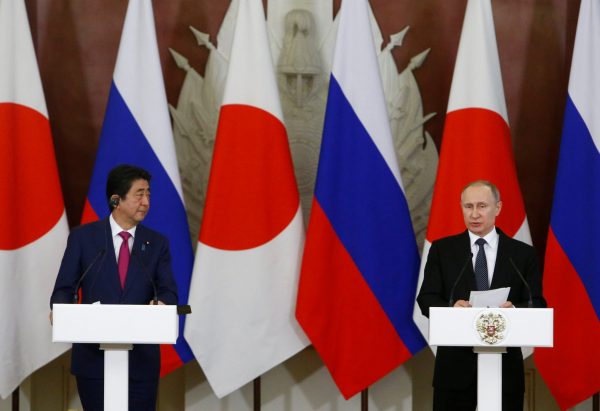The Trump administration’s imposition of tariffs — 25 per cent on steel and 10 per cent on aluminium — shocked the world of free trade. The tariffs were mainly directed towards China but their lack of nuance also affected and angered many of the United States’ allies such as the European Union and South Korea. As a result of international complaints, the White House presented a list of countries that are exempt from the new tariffs.
But Japan is missing from this list. Although Japanese Prime Minister Shinzo Abe is reportedly concerned and Foreign Minister Taro Kono urged the United States to not impose the tariffs, there are no signs that Washington will yield. During Abe’s recent summit with President Trump at Mar-a-Lago, the two leaders failed to reach an agreement regarding this question. This is an essential issue for Japan. The United States is one of Japan’s biggest export markets and the new tariffs pose a severe threat to Japanese prosperity.
Alongside the question of import tariffs, there is also the North Korean nuclear issue. After a period of escalation, an opening for dialogue has revealed itself. The planned talks include both Koreas and the United States. Abe has been very engaged in the North Korean question but is now concerned that Washington considers Japan to be diplomatically insignificant. Japan is still not invited to attend the historic talks with North Korea. This diplomatic insult and the United States’ import tariffs indicate that the current US leadership takes Japan’s commitment to the United States for granted.
While Japan’s current relationship with Washington is characterised by US neglect, the Japanese relationship with Russia is better than it has been for several years. Japan suffers from a chronic shortage of energy resources and seeks deepened energy cooperation with Russia. Japan is interested in diverting its energy imports away from the tumultuous Middle East region and Russia’s energy wealth in Siberia is among the best options for Tokyo to do so. For instance, major Japanese companies such as the Mitsubishi Group have invested in the Russian Sakhalin gas projects.
Japan imposed sanctions on Russia after the events in Ukraine in 2014, but these sanctions seem to have been intentionally limited. The Japanese sanctions did not have any major impact on the Russian economy and were a delicate way of balancing Tokyo’s commitment to the West and interests in Russia simultaneously. Since then, Russia–Japan relations have publicly improved. Tokyo, contrary to then US president Obama’s advice, sought to enhance economic cooperation with Moscow in the aftermath of the Ukraine crisis. The personal relationship between Abe and Putin also seems high-spirited — the pair took some time off during the Eastern Economic Forum in September 2017 to attend a judo tournament in Vladivostok.
The deepened economic, energy and security cooperation between Japan and Russia is spreading into other aspects of international politics. After the poisoning of Russian ex-agent Sergei Skripal in Salisbury in the United Kingdom, multiple countries (including the United States and members of the European Union) expelled large numbers of Russian diplomats. There were also vocal condemnations of Moscow for the poisoning. Japan, by contrast, has refrained from pointing the finger towards Russia and has not expelled any Russian diplomats. Instead, Japan condemned the use of chemical weapons and called for the facts to be established. Abe called Putin on 19 March to congratulate him for his election victory and to discuss new joint economic initiatives.
Whether Abe’s pursuit of good relations with Moscow is a strategy to work towards solving the Northern Territories/Kuril Islands dispute or to secure Japan’s energy supply, Abe certainly is trying to stay on Putin’s good side. For Russia, deepening cooperation with Japan provides a splendid opportunity for foreign investment and the use of its natural resource wealth of oil and gas in Siberia. Russia may also be trying a ‘wedging’ strategy to separate the United States from its allies. Turkey is currently drawing closer to Russia and Japan might be heading in the same direction.
The United States’ neglect of Japan in its current policy will not break the Japan–US alliance, but it will weaken the relationship and render Russia an appealing alternative for Japan.
Putin has ambitions for Russia’s Far East and the Trump administration’s approach is currently helping him achieve those ambitions. The worst-case scenario for Washington would be a shift of influence and political allegiances in Tokyo. If the United States is interested in maintaining its dominance as the major power of influence in Japan, it should adopt a more inclusive approach towards the country.
Magnus Lundström is a research associate at the Swedish Defence University.


I agree with the vast majority of this article but it is worth stressing that the Trump administration’s “neglect” of Japan is not the main driving force behind the Abe administration’s Russia policy. After all, as you note, Japan’s softer stance on Russia was evident in 2014 and Abe’s “new approach” was launched in May 2016.